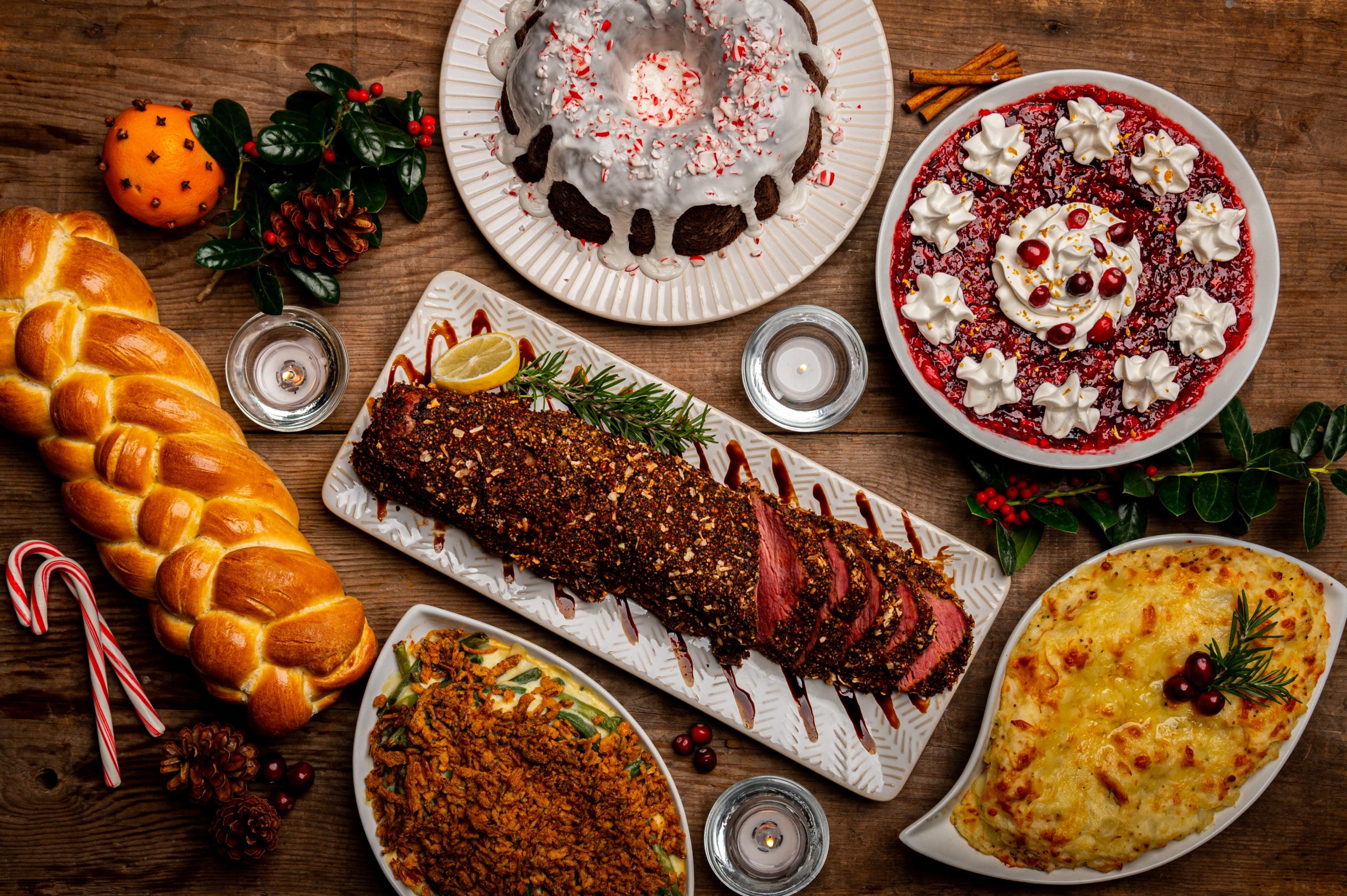
It’s that time of year again. Christmas cookies have invaded the office. Egg nog has graced the refrigerator shelf with its rich presence. And before the Thanksgiving turkey has been fully digested, I’m already dreaming of the Christmas dinner that lies ahead. As the old song says, this is truly the most wonderful time of the year, and much of it has to do with the holiday feasting that comes with it. As Christians, we should remember that there is no such thing as mere food or a simple holiday dinner. Our feasting carries a much deeper meaning. When we feast, there is something special—something spiritual—that is happening that we rarely stop to appreciate.
The sad reality is that the hardships over the last couple of years have put us in danger of forgetting why we feast. And so, as we begin our Advent season, it is worth pausing and preparing our hearts to remember what our holiday feasting actually is.
Our Feasting is Retrospective
When we eat, we look backward and remember all the good that God has given us. Most of the festal celebrations in the Old Testament (especially the Passover, the Feast of Unleavened Bread, the Feast of Tabernacles, and Purim) were celebrated to commemorate a great work of salvation in Israel’s past. These feasts provided opportunities to teach the children what God had done (Exodus 12:26-27; Esther 9:30-32). Feasting, then, gives us a platform to tell of God’s past goodness. At the festal table, “One generation shall commend your works to another, and shall declare your mighty acts” (Psalm 145:4). As we dig into the rich food, we “tell to the coming generation the glorious deeds of the Lord, and his might, and the wonders that he has done” (Psalm 78:4).
Our Feasting is Prospective
Another way to say this is that our feasting points forward to the eschatological kindness that awaits God’s people. It is significant that the Bible envisions the future as a great feast. Isaiah 25 speaks of an eschatological feast that the Lord himself will make “for all peoples.” God, the Great Chef of Redemption, will cook up a “feast of rich food, a feast of well-aged wine, of rich food full of marrow, of aged wine well refined” (Isaiah 25:6). And as God’s people are swallowing down the rich food, God will “swallow up death forever” (Isaiah 25:8). Jesus also spoke of a future feast where the nations will come and “recline at the table with Abraham, Isaac, and Jacob in the kingdom of heaven” (Matthew 8:11). Revelation ends by declaring that the wedding feast of the Lamb has arrived (Revelation 19). The Bride and the Spirit invite others to come and take the water of life without price (Revelation 22:17), which itself is a reference to Isaiah 55’s feast. When we feast, we look ahead to the future feast. Our festal celebrations in the present are delicious appetizers of the satisfying entrée that is still to come when our King returns and sits with us at the Kingdom’s table.
Our Feasting is Symbolic
Again, food is never just food. It is a symbol of deeper spiritual realities. In fact, the symbolism of our feast is richer than the food itself. Just think of the wide variety of flavors that send our palate into joyful awe. God displays his manifold greatness as the Great Chef that he is by providing colors and textures, not to mention the vast array of savory and sweet dishes. And he has done all this not just so that we will survive but also so that we may enjoy. Eating and drinking in its most proper form glorify the Chef (1 Corinthians 10:31). In our prayer of thanks, we give our compliments to the Redemptive Chef, who has done more than was necessary for our joy. There is a reason the Psalmist says, “Oh, taste and see that the Lord is good” (Psalm 78:8). Peter describes those who have been saved as those who have “tasted that the Lord is good” (1 Peter 2:3). The Lord’s goodness is just one aspect of our symbolic feasts. Our festal tables also remind us of God’s overabundant provision. A feast that has been properly prepared never runs out of food. At the redeemer’s table, people like Ruth may eat and be satisfied and yet still have leftovers (Ruth 2:14). In the same way, we eat till we are full because we have a Savior who has filled us with good things (Luke 1:53).
Our Feasting is Transformative
If you have never noticed, we become different people once our feasting is over. We come to the table “hangry” and empty but leave full and satisfied. The deep sighs and happy patting of the belly are visible signs that contentment has been accomplished. Our feasts whisper to us that a great reversal is on the way. Those who were once empty will be full. While we suffer many forms of emptiness—an empty seat at the table where a loved one once sat, empty arms that crave a child, or empty eyes that have been drained of every last tear—God has not left us without a redeemer. And that redeemer will not leave us empty-handed in the end. He has already begun the work of filling our emptiness, but future grace and kindness is just over the horizon. When the time for the Kingdom’s feast finally comes, we will be forever full as we sit, sip, and eat in the presence of our Great King. With that parting thought, may your feasting be merry, your empty bellies satisfied, and your hungry heart filled!

